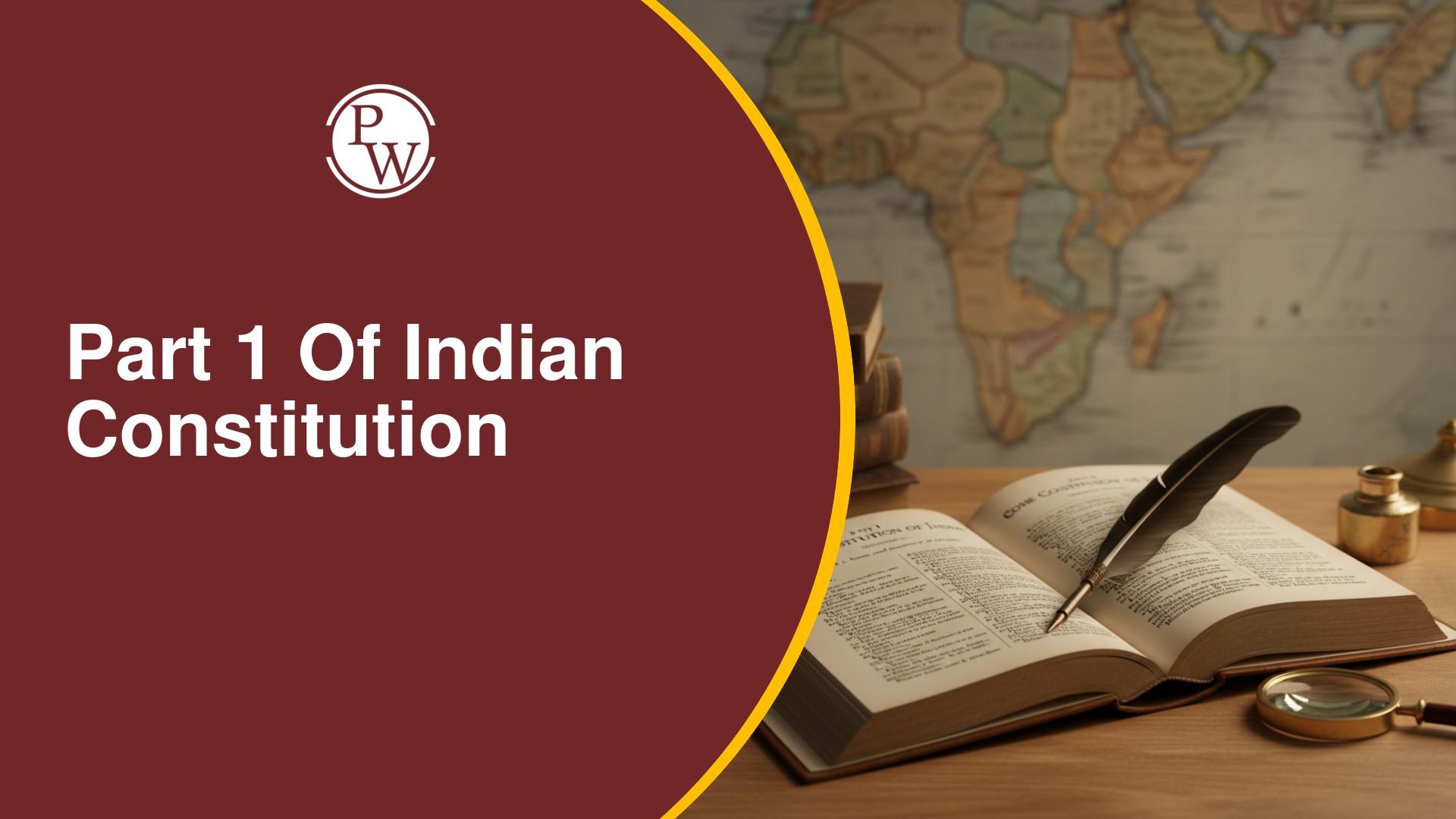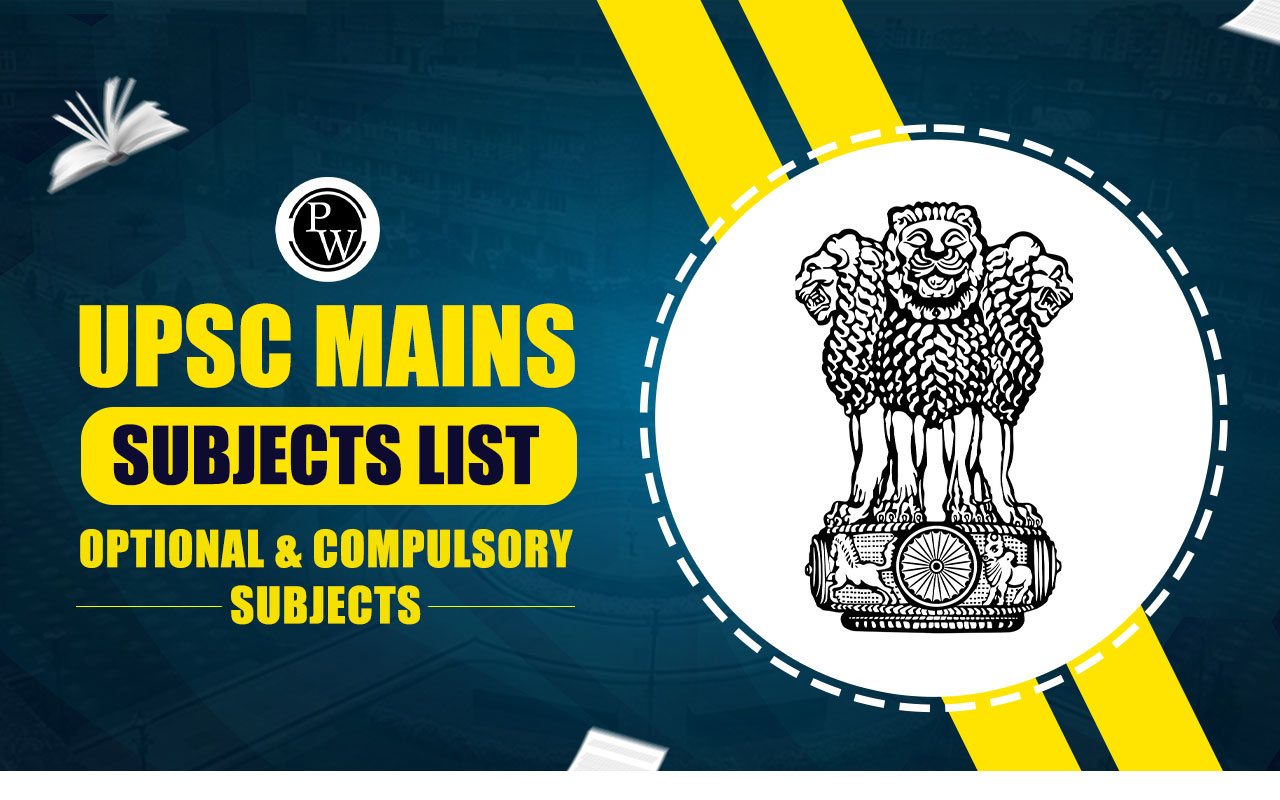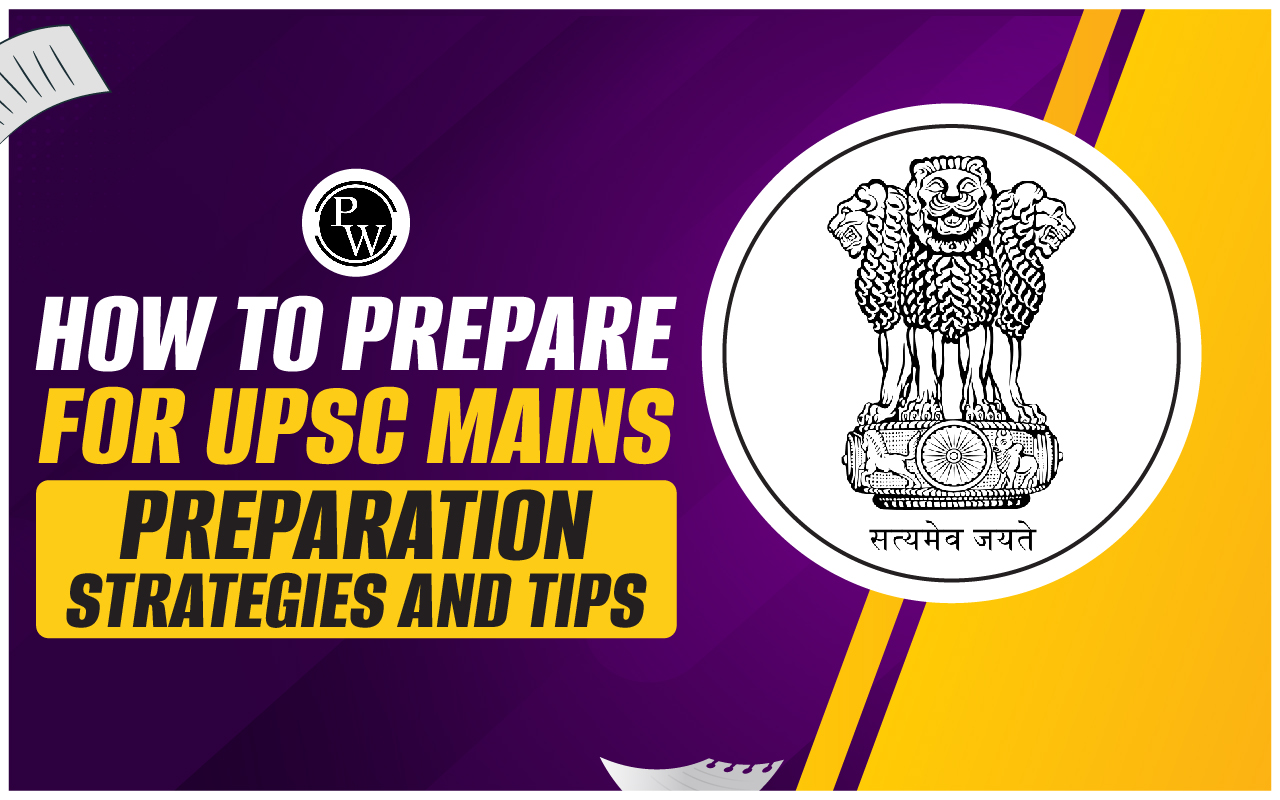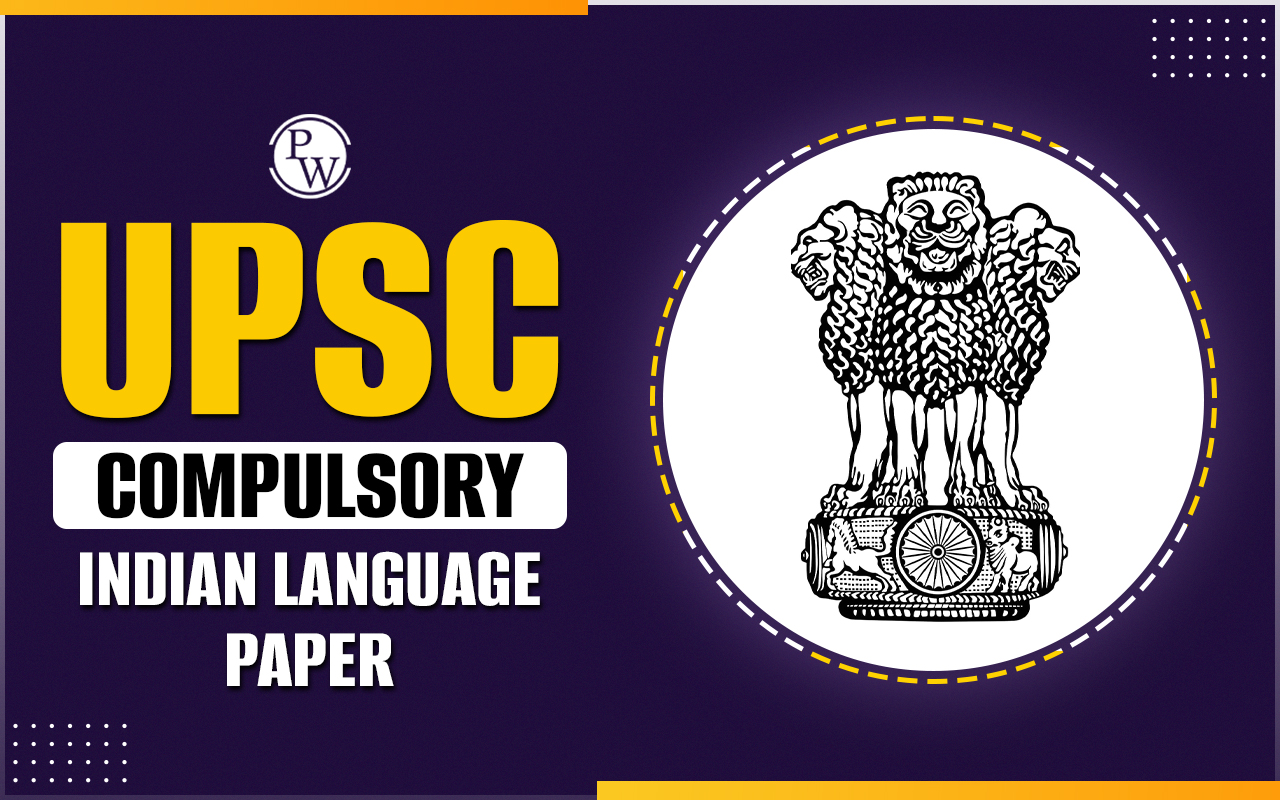
Election Commission of India (ECI) plays a crucial role in ensuring free and fair elections in the world's largest democracy. Established under Article 324 of the Indian Constitution , the ECI is responsible for administering election processes at both the national and state levels.
The core objective of the Election Commission of India is to ensure transparency, fairness, and impartiality in elections of Lok Sabha, Rajya Sabha , state assemblies , and the offices of the President and Vice President. Read on to find out the composition, constitutional provisions, structure, powers, and responsibilities of the Election Commission.Election Commission of India
The Election Commission of India (ECI) is an autonomous constitutional authority tasked with overseeing elections in India. Formed on January 25, 1950 , the ECI has played a pivotal role in maintaining the integrity of India's democratic framework. Here is a brief overview of ECI:| Election Commission of India - Overview | |
| Particular | Details |
| Established | January 25, 1950 |
| Constitutional Provision | Articles 324 – 329, Part XV |
| Composition | Chief Election Commissioner (CEC) and two Election Commissioners |
| Appointment By | President of India |
| Tenure | 6 years or up to age 65, whichever is earlier |
| Removal |
|
| Functions | Conducts elections to Parliament, State Legislatures, and offices of President and Vice President |
| Salary | Same status and salary as Judges of the Supreme Court of India |
| Headquarters | New Delhi |
Constitutional Provision of Election Commission
The Election Commission of India derives its authority from Article 324 of the Indian Constitution. Article 324 in the Constitution of India mentions that ‘ Superintendence, direction, and control of elections to be vested in an Election Commission’ further detailing composition, tenure, responsibilities, and removal. This article grants the ECI the power to direct, supervise, and control the entire electoral process , which includes preparing electoral rolls, scheduling elections, and ensuring free and fair polling. The Constitution not only establishes the ECI but also ensures its autonomy and independence by providing the Commission with complete control over electoral matters.Structure of the Election Commission
Initially, the Election Commission of India consisted of only one Chief Election Commissioner (CEC). However, in 1989, it became a multi-member body with the appointment of two additional Election Commissioners. Currently, the ECI consists of three members:- Chief Election Commissioner (CEC): The head of the Commission who holds the highest authority in electoral matters.
- Two Election Commissioners (ECs) : They assist the CEC in carrying out the functions of the Election Commission.
Tenure and Removal of Election Commission of India
The Chief Election Commissioner and the Election Commissioners have a fixed tenure to maintain their independence and ensure that they are not influenced by political pressure.Tenure
The tenure of the CEC and ECs is either six years or until they reach the age of 65 years , whichever comes earlier. This provision ensures that members of the Election Commission have sufficient time to implement their decisions without fear of premature termination.Removal
The CEC can only be removed from office through a process similar to that of a Supreme Court judge, which involves impeachment by Parliament. This safeguards the position of the CEC, maintaining its autonomy. However, other commissioners can be removed by the President based on the CEC’s recommendation .Election Commission of India and 75 Years of Upholding Democracy
As the Election Commission of India (ECI) completes 75 years of its dedicated service to the nation, it stands as a testament to India’s succeeding democracy. Established on January 25, 1950, just a day before India became a Republic, the ECI has been pivotal in ensuring free, fair, and transparent elections. This milestone coincides with the celebration of the 15th National Voters’ Day (NVD) on January 25, 2025, a day dedicated to honouring voters and promoting electoral participation.Highlights of the 15th National Voters’ Day
This year’s NVD celebration is particularly special, following the successful conduct of the 2024 Lok Sabha Elections—the world’s largest democratic exercise. With India's electorate nearing the 100-crore mark, the ECI's efforts reflect a youthful and gender-balanced voter base. The electoral database now includes 21.7 crore young voters in the 18-29 age group, with an improved Electoral Gender Ratio rising from 948 in 2024 to 954 in 2025.Celebrations and Events
The Hon’ble President of India, Smt. Droupadi Murmu will preside over the national function in New Delhi, accompanied by distinguished guests such as Shri Arjun Ram Meghwal, the Union Minister of State for Law and Justice (Independent Charge), and the Chief Election Commissioner Shri Rajiv Kumar. Heads of Election Management Bodies worldwide will also attend a two-day conference on January 23-24, 2025, to discuss challenges and innovations in election management.Salary of Election Commission of India
The Chief Election Commissioner and Election Commissioners enjoy the same salary and benefits as Supreme Court judges . Their pay is structured to ensure financial security and autonomy, minimizing the risk of political or external influence. Apart from salary, they are entitled to other perks and benefits such as official residence, medical facilities, and pensions. The financial independence provided to the CEC and ECs is crucial to maintaining their neutrality in conducting elections.Role & Function of Election Commission
The Election Commission of India has varied roles and responsibilities to ensure the smooth functioning of the democratic electoral process. Some of its primary functions include:- Conducting Elections: The ECI is responsible for administering elections to the Parliament, state legislatures, and the offices of the President and Vice-President.
- Preparing and Updating Electoral Rolls: The ECI ensures that electoral rolls are accurate and up-to-date to prevent voter fraud and duplication.
- Model Code of Conduct: It lays down the Model Code of Conduct to regulate political parties' behavior during elections, ensuring fair competition.
- Political Party Registration: The ECI registers political parties, allot election symbols, and monitors their finances and campaign expenses.
- Supervision of Election Machinery: The ECI oversees the functioning of election officials, ensuring they conduct their duties impartially.
- Voter Education: It promotes voter awareness programs like Systematic Voters' Education and Electoral Participation (SVEEP) to increase electoral participation.
- Quasi-Judicial Functions: The Election Commission resolves disputes over political party recognition and election symbols and appoints officers to investigate electoral-related disputes.
- Advisory Functions: The Election Commission advises the President on disqualifications of Parliament members, the Governor on disqualifications of State Legislature members, and the President on holding elections in a State under the President’s Rule.
Power of Election Commission
The Election Commission of India has been given significant powers to ensure that elections are free from any form of malpractice and corruption. The powers of ECI are as follows:- Supervision and Control: The ECI has the authority to supervise the election machinery, ensuring that it functions independently.
- Code of Conduct Enforcement: It can issue directives to ensure adherence to the Model Code of Conduct by political parties.
- Election Scheduling: The ECI has the power to determine election dates and the order of polls across states.
- Reprimand and Disqualification : The ECI can reprimand candidates or disqualify them if they violate electoral laws such as failure to provide an account of their election expenses.
- Collaboration with Law Enforcement Agencies : The ECI collaborates with various law enforcement agencies to ensure a secure environment for elections, tackling issues such as electoral violence and voter intimidation.
Limitations of the Election Commission
While the Election Commission of India holds considerable authority, it also faces some limitations such as:- No Power to Punish: The ECI can only recommend actions against candidates or parties that violate laws. It does not have the power to directly impose punishments.
- Dependence on Government Machinery: The ECI relies on the government for resources and personnel to conduct elections, which can sometimes limit its operational efficiency.
- Limited Jurisdiction on Political Funding: While the ECI monitors election expenditures, it has limited power to regulate political funding and donations.
- Electoral Reforms: While the ECI can propose reforms, implementing these reforms often requires the approval of Parliament.
- Lack of Autonomy in Appointments: Since the government appoints Election Commissioners, there can be concerns about bias.
New Initiatives by Election Commission of India
The ECI is constantly improving the electoral process in India. Some of its recent initiatives include:- Postal Ballot for Absentee Voters: Absentee voters, including essential service workers, senior citizens, and persons with disabilities, can now opt for postal ballots.
- Online Nomination Data Entry: Candidates can now enter their personal details online for nomination forms via the ECI's Suvidha portal, reducing errors .
- Eco-Friendly Campaigns: Political parties are encouraged to avoid single-use plastics in campaign materials to promote environmental health.
- Four Qualifying Dates for Voter Enrollment: Citizens turning 18 on January 1, April 1, July 1, or October 1 can enroll in the electoral roll throughout the year.
- Engaging Young Voters: The ‘Turning 18’ campaign targets young and first-time voters, emphasizing civic responsibility and the importance of voting.
- Recognition of Stakeholders: The ‘You Are The One’ campaign celebrates the contributions of all stakeholders in the electoral process, highlighting their dedication through engaging storytelling.
- Combating Misinformation: The ‘Verify Before You Amplify’ initiative encourages citizens to fact-check information before sharing, combating fake news related to elections.
- Interactive Content: The ECI features engaging content like election stories, word games, and Q&A sessions to educate voters about the electoral process.
- cVIGIL Portal: The cVIGIL Portal is a mobile app by the Election Commission of India that allows citizens to report electoral violations in real-time with multimedia evidence.
State Election Commission
The State Election Commission is established under Article 243K of the Indian Constitution, which mandates that each state should have its own Election Commission to handle elections for Panchayats and Municipalities. The State Election Commission ensures that elections at the state and local levels are free, fair, and transparent. Key roles and functions of SEC involve:- Conducting Elections: The SEC conducts elections for local bodies (Panchayats, Municipalities) and ensures they are held according to the law.
- Supervising Electoral Rolls: It maintains and updates the electoral rolls for local body elections.
- Election Disputes: The SEC resolves disputes arising from local body elections and has the authority to decide on matters related to the election process.
- Monitoring Election Process: It ensures that elections are conducted in a transparent and free manner, without undue influence or malpractice.
- Appointing Election Officials: The SEC appoints election officials, such as polling officers, for local body elections.
- Advisory Role: It advises the state government on matters related to the electoral process and ensures compliance with laws and regulations related to elections.
UPSC PYQs on Election Commission
UPSC Prelims 2017: Consider the following statements:
- The Election Commission of India is a five-member body.
- The Union Ministry of Home Affairs decides the election schedule for the conduct of both general elections and bye-elections.
- Election Commission resolves the disputes relating to splits/mergers of recognised political parties.
Which of the statements given above is/are correct?
(a) 1 and 2 only
(b) 2 only
(c) 2 and 3 only
(d) 3 only
UPSC Mains 2022 : Discuss the role of the Election Commission of India in the light of the evolution of the Model Code of Conduct . For further guidance on UPSC exam preparation, explore the comprehensive online courses offered by Physics Wallah . Enroll now!| UPSC Related Articles | ||
| UPSC Prelims Questions | NCERT for UPSC Exam 2025 | Chanakya Niti |
| UPSC Mains Exam Pattern | Impact of Social Media on UPSC | Role of Family Support in UPSC |
Election Commission of India FAQs
What is the Election Commission of India?
The Election Commission of India is a constitutional authority responsible for conducting free and fair elections to the Parliament, state legislatures, and the offices of the President and Vice-President.
How is the Chief Election Commissioner appointed?
The Chief Election Commissioner is appointed by the President of India.
How many members are there in the Election Commission?
The ECI consists of one Chief Election Commissioner and two Election Commissioners.
What is the tenure of the Chief Election Commissioner?
The Chief Election Commissioner serves for six years or until the age of 65, whichever is earlier.
What is the role of the Election Commission of India?
The ECI supervises elections, enforces the Model Code of Conduct, and oversees the preparation of electoral rolls, among other functions.
Who appoints the Election Commissioners of India?
The President of India appoints the Election Commissioners of India, including the Chief Election Commissioner (CEC) and other Election Commissioners based on the recommendations of the Prime Minister and the Council of Ministers.
Talk to a counsellorHave doubts? Our support team will be happy to assist you!

Free Learning Resources
PW Books
Notes (Class 10-12)
PW Study Materials
Notes (Class 6-9)
Ncert Solutions
Govt Exams
Class 6th to 12th Online Courses
Govt Job Exams Courses
UPSC Coaching
Defence Exam Coaching
Gate Exam Coaching
Other Exams
Know about Physics Wallah
Physics Wallah is an Indian edtech platform that provides accessible & comprehensive learning experiences to students from Class 6th to postgraduate level. We also provide extensive NCERT solutions, sample paper, NEET, JEE Mains, BITSAT previous year papers & more such resources to students. Physics Wallah also caters to over 3.5 million registered students and over 78 lakh+ Youtube subscribers with 4.8 rating on its app.
We Stand Out because
We provide students with intensive courses with India’s qualified & experienced faculties & mentors. PW strives to make the learning experience comprehensive and accessible for students of all sections of society. We believe in empowering every single student who couldn't dream of a good career in engineering and medical field earlier.
Our Key Focus Areas
Physics Wallah's main focus is to make the learning experience as economical as possible for all students. With our affordable courses like Lakshya, Udaan and Arjuna and many others, we have been able to provide a platform for lakhs of aspirants. From providing Chemistry, Maths, Physics formula to giving e-books of eminent authors like RD Sharma, RS Aggarwal and Lakhmir Singh, PW focuses on every single student's need for preparation.
What Makes Us Different
Physics Wallah strives to develop a comprehensive pedagogical structure for students, where they get a state-of-the-art learning experience with study material and resources. Apart from catering students preparing for JEE Mains and NEET, PW also provides study material for each state board like Uttar Pradesh, Bihar, and others
Copyright © 2026 Physicswallah Limited All rights reserved.









